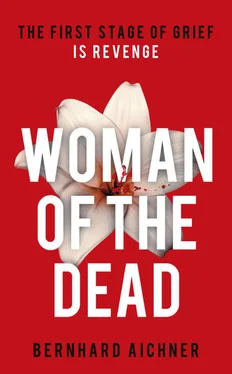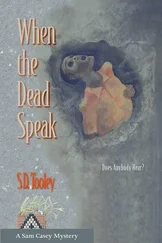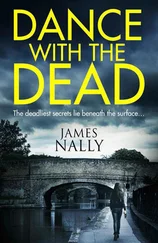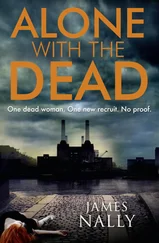Uma doesn’t want to eat. Nela makes a mess of the kitchen floor, spills water over it, throws her pasta across the room. It’s midday. Blum watches them. Blum leaves them alone. She knows two things. First, she must look after the children, love them, give them all the things she never had herself. Second, she must find Dunya. The woman talking on the mobile phone, the woman whom Mark met so often right before his death. Blum wants to look into her eyes, she wants to see if Mark was right.
He must have picked her up, probably at the tearoom, she had got food there. They drove to the hotel and went on talking. Mark wasn’t letting go, but he had nothing to go on. No lead as to how the men managed to abduct them from their beds. Dunya had no idea. Anyone determined could have walked into the staff hostel; indeed, any tourist could have gained access to their bedrooms. The front door was never locked, they had no reason to live in fear. That was why it sounded so incredible, so unlikely that someone had drugged them and taken them out of the house. Three grown adults abducted from a hotel, just like that, unnoticed. In Sölden, a famous centre of winter tourism, with crowds milling on the pistes, in the boutiques and in the après-ski bars, with Tyrolean charm for sale, wood-panelled rooms where caviar and champagne are served. Blum knows what the place is like; she and Mark had been skiing there, they had drunk tequila and danced to meaningless songs. Sölden is like any other Tyrolean resort. Anyone would doubt the feasibility of abducting people from it. But Mark didn’t. And Blum doesn’t either.
Why is she getting involved in his work, why is she interested in it? She can’t help herself. She has to follow it up, she can’t just sit there pretending nothing has happened. There is a terrified woman out there. A woman who was abducted and locked up for five years, raped and abused. What Blum has heard doesn’t allow her to doubt for a minute that she must find out whether it is true. Whether Mark was on the trail of some major and dreadful crime. Why would I make up a story like that? Dunya asked. Blum wants to know. And she wants Uma to finally finish her pasta, she wants Nela to stop rubbing tomato sauce into her face.
Ilena, Youn, Dunya. And five men who kept coming back to have their fun. To hurt their captives. As she watches the girls, innocent and smiling, she wants to banish the thought from her mind. She doesn’t want to spend a second longer thinking about those recorded conversations, Mark’s questions, Dunya’s answers. Yet the story won’t go away and she can’t think of anything else. From Sölden to the service station near the Italian border. None of what happened will go away, it will stay in her mind all day and all night.
Blum no longer feels the pain that has been eating away at her for three whole weeks; she has almost suppressed her longing for him. That feeling has gone, leaving only Dunya. And Mark. Somehow it is as if he has come back to life and she is sharing something with him, she has discovered something he kept hidden. Mark, her husband, her love, the father of her children. He lives on in the conversations that she listens to as she drives through the city searching for Dunya – a stranger to her, a woman without a face. All that Blum knows of her is her voice and that she comes from Moldavia. Blum knows that she speaks extraordinarily good German and is sleeping rough, somewhere under the autobahn. This woman without a surname who has suddenly changed everything.
She doesn’t say a word to anyone. She has decided to keep quiet for the moment; first she wants to talk to Dunya herself. Only then will she go to Karl or Massimo and ask for help. If it’s true. If she can find Dunya. Innsbruck is not a large city but it is difficult to find someone who doesn’t want to be found. Blum prepares for a long search; the staff at the soup kitchen can’t give her any information. No one knows a woman called Dunya, the name means nothing to the homeless people Blum speaks to. Even money can’t persuade them to tell her where to look. Dunya has left no trace. All Blum can do is search the city, the parks, under the bridges, under the autobahn. She drives around for hours, walks for hours, but to no avail. There is no Moldavian woman speaking almost unaccented German, no sign of her for three days.
Then, suddenly, there she is, in the supermarket. A slender woman in old clothes. She looks too beautiful, too radiant to be homeless. Dunya is carrying a bag of bottles; she wants to exchange them for money, but the machine isn’t working. The salesgirl comes and takes the bottles from her, sorts them into crates and writes out a voucher for the cash. Nothing has changed yet, Blum is still searching, she is on the point of giving up, she has searched every nook and cranny of this town, has checked every place that someone might hide. But Dunya wasn’t there. Dunya had disappeared. Now they are standing side by side.
Dunya takes the voucher from the salesgirl. Blum puts the rice noodles that she has taken off the shelf into her trolley and carries on up the aisle. She doesn’t see Dunya shaking her head and opening her mouth, she only hears her asking the salesgirl to check her figures again. The sum is fifty cents short, she says. The salesgirl is impatient, she doesn’t want to check her sums, she is sure she got them right. But the familiar voice goes on claiming those fifty cents. Blum turns around. There’s no need to kick up such a fuss for fifty cents, says the salesgirl. But Dunya insists. Politely, but loud and clear, she demands her fifty cents and makes the salesgirl alter the figure on the voucher. It is the voice that Blum has been trying to track down for the past three days.
Blum looks at Dunya. She has imagined her differently, wounded, more damaged. From all she has heard, this woman must be devastated, there ought to be nothing left of her, not an attractive feature on her face, not a spark of hope. But her expression betrays none of what has happened to her. Briefly, Blum wonders whether the voice is really hers, but only briefly. Then she is sure, she knows it beyond any shadow of doubt. She follows her through the supermarket, making purposefully for the cash desk, where Dunya gives the cashier her voucher, takes her money and leaves, with Blum in pursuit. Blum has abandoned her shopping trolley; she mustn’t lose Dunya, she must follow her, speak to her.
Dunya crosses the car park quickly and reaches the bank of the River Inn. She walks along the riverside promenade, with Blum on her heels. They couldn’t be in a better place, there is almost no one else around. Blum takes a moment to get her breath back and formulate a plan. It’s happening so fast. A few moments ago, Blum had been on the point of giving up, but now she has found her quarry. She will approach Dunya when they reach the pedestrian bridge. She has until then to suppress the images flooding her mind. Suddenly she feels envy. She feels it everywhere, her heart is crying out again, the pain is back. Everything hurts. Maybe Mark had fallen in love with her. She imagines Mark and Dunya walking side by side along this promenade, sitting on a bench together, talking. Dunya pouring out her heart to him, confiding everything, showing him her innermost being. In her mind’s eye, Blum sees her naked before him. Sees him embracing this beautiful foreign woman. With every step she takes, the scenario becomes more real. Blum doesn’t want to talk to the woman any more, Blum wants her to disappear. Go away. Walk on. Blum stops, and closes her eyes.
Why didn’t she just give the phone away? Why did she insist on listening to it all? Why does this woman have to be so beautiful? Why can’t she just talk to her and ignore the noise in her head? Why is she afraid Mark was unfaithful? Suppose he had touched Dunya? Kissed her, caressed her in her despair. Suppose Dunya had simply said yes; had accepted his understanding, his kindness, his instinctive urge to rescue. Like Blum had eight years before. Terrible things had happened to Dunya but there was more than pity in his voice. Much more. Blum is afraid of opening her eyes, afraid of following, afraid of finding out. She does it, all the same. She opens her eyes and she runs. Dunya!
Читать дальше












